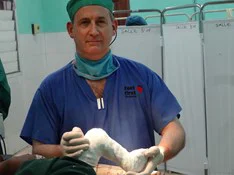In this blog, Consultant Orthopaedic Surgeons Paul Parker and Steve Mannion speak about the importance of increasing access to surgical care in Low and Middle Income Countries (LMICs) and equipping surgeons with the skills to deliver safe surgery in environments where there is often limited or no access to high tech resources.
They also share how the new HOPE (Humanitarian OrthoPlastic Surgery in Low Resource Environments) course will equip surgeons with essential orthopaedic and plastic surgical techniques which may be outside of their specialty or field of practice in their home country.
In 2015 the Lancet Commission recognised the desperate need to improve and increase surgical provision in Low and Middle Income Countries (LMICs). The five key messages were:
- 5 billion people globally do not have access to safe, affordable surgical care when needed
- A further 143 million additional surgical procedures are needed in LMICs worldwide in order to reduce mortality and prevent disability
- Every year, 38 million people face what for them is catastrophic expenditure in order to access surgical services
- Provision of surgical services is achievable, affordable and has clear economic benefits
- Surgery should be seen as an integral part of a national healthcare system.
A considerable proportion of the global surgical need is orthopaedic in nature. Musculoskeletal trauma disproportionately affects the poor, who, in LMIC countries, are least able to access orthopaedic trauma care. Education of surgeons and non-physician clinicians can be an important part of improving the capacity and quality of orthopaedic services. An important potential resource for providing such training are volunteer surgical missions from high resource countries to LMICs. Longer term visits by volunteer surgeons can also be an important part of service delivery, and the experience such individuals can gain from LMICs can be extremely useful on their return to developed world practice. However, modern surgeons in more developed countries are tending to have an increasing narrow field of practice and are increasingly dependent on expensive, “high tech” treatment methods which are unavailable in LMICs. In view of this questions arise as to the value of such surgeons in LMIC settings, and individuals may be reluctant to volunteer due to anxieties with regard to their ability to practice orthopaedic surgery in a resource deprived or austere setting.
In resource deprived settings the mainstay of fracture care is conservative treatment in plaster-of-Paris or traction. Plaster-of-Paris is relatively cheap and versatile and can even be improvised from crepe bandages and building plaster in extreme circumstances. The definitive treatment of long bone fractures by skeletal traction was once commonplace even in the developed world, but the skills of applying and managing traction have now largely been lost to surgeons in high-income countries. In the less developed world, with few surgeons, limited access to theatre and limited availability of internal fixation devices treatment of long bone fractures by traction is essential.
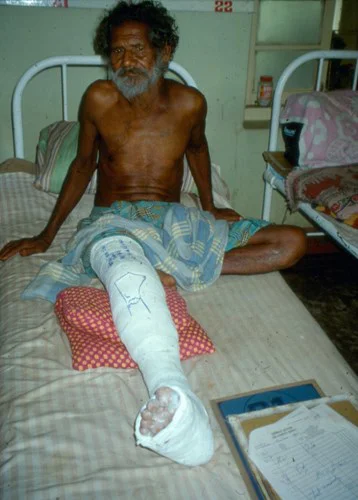
In high-income countries fracture treatment is very dependent on intra-operative fluoroscopy to assist in the reduction of fractures and the positioning of internal fixation devices. As C-arm X-ray machines are expensive and hard to maintain they are often not available in LMIC settings, and surgeons need to develop the skills and experience of orthopaedic practice without the benefit of such technology.
When compared to developed world practice there is a higher incidence of compound fractures in LMIC orthopaedic practice. This is often a consequence of interpersonal violence or the increased incidence of road traffic accidents with greater vulnerability of pedestrians and vehicle occupants. Additionally the compound fractures are often late presenting, with already established infection. Surgeons working in LMIC countries need to understand the importance of thorough debridement and the use of external fixation, often maintained until definitive fracture union.
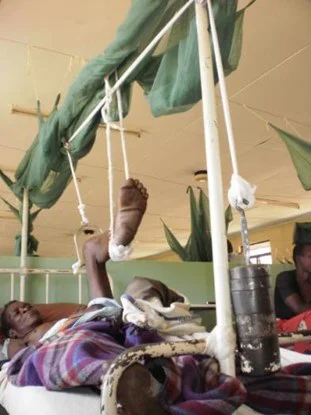
In high income countries the treatment of compound fractures is an “orthoplastic” responsibility shared between plastic and orthopaedic surgeons. With plastic surgeons even more scarce than orthopaedic surgeons in LMIC countries, orthopaedic surgeons need to develop plastic surgical skills in order to deal with these compound injuries. In high income countries, split skin grafting, once a “generic” surgical skill, is now the sole province of plastic surgeons and often with dependence upon electric dermatomes and meshers. Orthopaedic surgeons working in resource deprived settings need to develop this skill using only hand powered techniques, and also have basic rotation flap skills, especially around the lower limb.
Amputation would once have been regarded as a core skill be orthopaedic surgeons in the UK, but would now only be relatively rarely undertaken, with most procedures being done by vascular surgeons as treatment of ischaemic pathology. In less developed countries, and especially in conflicts or in the aftermath of natural disasters such as earthquakes, amputative skills and experience should be regarded as essential.
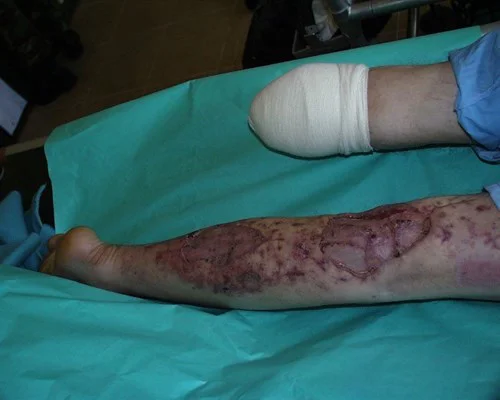
The new HOPE/OSLRE course being prepared by the College aims to prepare developed surgeons with some of the skills, referenced above, which are necessary to undertake musculoskeletal practice in LMICs. With an emphasis on conservative traction by POP or traction, the course also embraces debridement, external fixation definitive closure of wounds by orthoplastic techniques and principles of amputation surgery of both the upper and lower limbs. The course will also embrace a priority based approach to the indications, techniques and risks of internal fixation in a less developed world setting. The course will utilise fresh frozen cadaveric material and be taught in small groups under the direction of orthopaedic and plastic surgical faculty all with extensive experience of surgery in resource deprived settings. Further details of the course and registration can be found here.
Finally, whilst the HOPE course therefore clearly supports UK surgeons prepared to travel to low resource environments in the less developed world, it is also part of the College’s ‘Global Health’ program placing International Medical Graduates into high quality UK quality-assured two-year training programs through the International Postgraduate Deanery. The IPD works closely with our international partners to ensure that international medical graduates who intend to return to their home countries are given appropriate training for the resources within their home countries – rather than focusing solely on, for example, robotic training that may not support their home country work environment. These surgeons then return home with their prized MIPDEd certificates and sound knowledge base. The developing world needs surgeons and surgical training. Our College continues to lead the way on this.
Paul Parker is a Consultant Orthopaedic Surgeon at the Queen Elizabeth Hospital in Birmingham. He has worked overseas in Iraq, Afghanistan, Mali, Djibouti, NW Pakistan, Belize and Sierra Leone. Widely published, he is Course Director of the DCOTS course (Damage Control Orthopaedic Trauma Skills) at our sister College in London and has previously taught on many other humanitarian and survival courses. He always believes in taking the road less travelled.
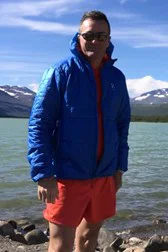
Orthopaedic surgeon Steve Mannion, MA MChir DTM&H DMCC FRCS (Tr & Orth) RD combined his specialist surgical training at Guys and St Thomas' Hospitals in London with overseas humanitarian surgical missions with Medecins Sans Frontieres and other agencies to Afghanistan, Cambodia, Sri Lanka, Ethiopia and Angola; and was one of only two surgeons in Kigali, Rwanda in the immediate aftermath of the 1994 genocide. From 1999-2003 he was a full time consultant in Malawi, being the only orthopaedic surgeon for the entire central and northern regions of the country, a catchment population of some 6-7 million people. In 2003 Steve returned to the UK to take up a consultant appointment in North West England, but combines this with up to 6 months per year overseas, running orthopaedic training and capacity building projects. Steve is a consultant advisor to the overseas disability charity CBM, a lead clinician in the UK response to International Disasters, former Chairman of World Orthopaedic Concern (UK) and head of the Department of Conflict and Catastrophe Medicine at St George’s, University of London. He is a leading figure in the treatment of clubfoot deformity and the Medical Director of the Global Clubfoot Initiative.
